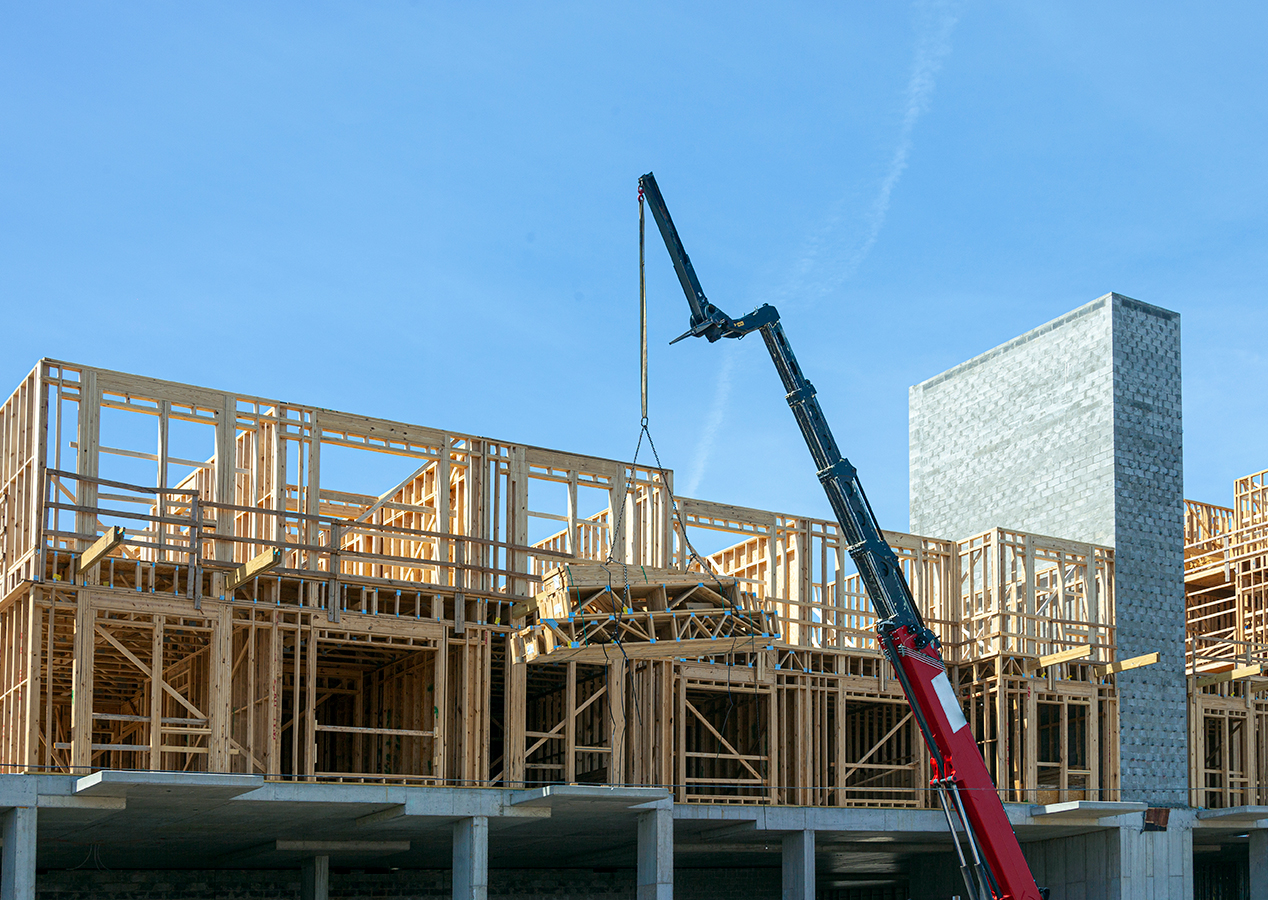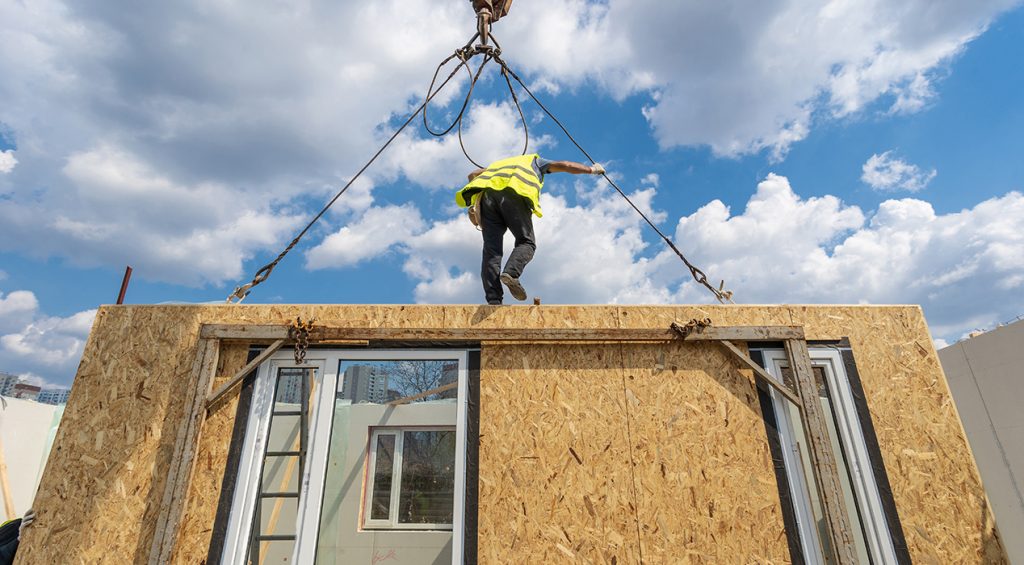5 Construction Industry Trends to Act on

Last year was a tough one for many industries, including construction. Record-breaking inflation and interest rate hikes, as well as ongoing labor shortages, supply chain issues and a volatile global economy challenged the industry. These obstacles can be confronted as threats, but a more productive approach is to see them as transformative opportunities.
There are many reasons to be optimistic, among them advances in technology, progress in eco-friendly practices and growth in sectors such as modular and prefabrication construction.
A Promising Future for Construction Management
In the U.S., the residential and nonresidential sectors are expected to continue advancing, with commercial construction estimated to grow at a CAGR of 1.62% between 2022 and 2027 to a market size of $107.69 billion. Most of this growth will be driven by an increase in construction of green buildings, manufacturing plants and distribution facilities, as well as a booming real estate sector.
Sources: Statista, Research and Markets, Technavio, Deloitte
5 Trends What to Watch For
Staying abreast of construction trends helps decision-makers develop successful business strategies and respond to changes effectively in order to minimize disruptions and enhance their competitiveness.
Here are some of the most prominent construction industry trends.
1. Continued Labor Shortage
This year the industry will continue to face significant labor shortages in a super tight labor market. A 2022 study by the Associated General Contractors of America (AGC) and Autodesk found that 93% of construction companies have unfilled positions. This lack of skilled workers limits companies’ ability to meet demand.
Talent pressures and shifting workforce models are urging the industry to rethink labor strategies. We’re likely to see more companies using advanced digital construction management methods and tools to increase productivity and efficiency. Robust training, digital upskilling, automation and knowledge sharing programs will be critical going forward.
2. Green Construction, Sustainability and Preconstruction
As consumers become more sustainability conscious and place greater pressure on the industry to reduce its carbon footprint, project owners, designers and builders will continue to adopt eco-friendly practices in order to deliver projects that have a more positive impact on the environment and society.
These practices typically involve using sustainable construction materials and methods that reduce waste and toxins, incorporating solar panels in new projects and other renewable energy elements, recycling, and repurposing construction materials.

3. Digital Technologies and Big Data
A digital overhaul is one of the most significant trends taking place in the construction industry. Companies are increasing their investment in and reliance on technology such as project management software, supply chain technology, fuel and fleet optimization, connectivity, uptime or output contracts, equipment tracking software and others. Technology is helping the industry improve speed, predictability, innovation, collaboration, safety and profitability.
Data Driven
Digital technology allows companies to collect, analyze and use data to better plan their projects and make smarter decisions based on real-time information. Data is being used in every stage of the construction process to create more accurate timeline and budget estimates and improve processes, which help prevent cost overruns and delays.
Right now, too much of this data is being stored in multiple disparate systems, making it less useful than it could be. Expect to see more companies using artificial intelligence (AI) and cloud-based platforms to automate their data to consolidate and standardize it in order to derive actionable insights that will be crucial to the success of projects, companies and the whole industry.
New Realities
Virtual reality (VR), augmented reality (AR) and mixed reality (MR) are other digital innovations that, as they become more accessible and affordable, are expected to transform the construction industry. These can be integrated in design tools, training programs, safety testing, inspections, virtual tours and other applications.
4. Increased Automation
Automation–achieved through 3D printing, AI, robotics, drones, geofencing, the Internet of Things (IoT) and nanotechnology–will have a greater impact on the industry this year and beyond.
Automation offers significant advantages in the design and construction of structures, including greater speed, accuracy, productivity tracking, risk mitigation and safety. Artificial Intelligence (AI) In Construction Market is projected to reach USD 13,247.7 Million by 2030, growing at a CAGR of 36% from 2023 to 2030.according to a report by Verified Market Research.
Robotics, 3D printing and IoT are expected to be game-changers in the industry. 3D printing will reduce construction time, increase safety and promote sustainability. Robotics and IoT will assist companies with manual tasks (such as bricklaying) and enable them to monitor productivity in real-time and use that information to manage project schedules, budgets and processes more efficiently, saving time and money.
5. Modular and Prefabricated Building
An increased focus on sustainability will create more opportunities for modular and prefabricated construction. These methods reduce the environmental impact of construction and allow companies to better scope, plan and coordinate their projects prior to the start of construction, as well as reduce waste and improve productivity, accuracy, speed and safety.
Are You Ready?
As the industry continues to evolve, staying informed about trends and changes is smart business. Are you ready to talk about your project? Our team can handle any question you have and show you all the options available to you.
CIC Construction Group has 40 years of experience and expertise that consistently exceeds our clients’ expectations. We offer comprehensive general contracting services for commercial customers in the Caribbean and Southeast U.S Contact us.
